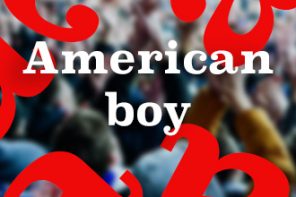To celebrate the 50th anniversary of England’s World Cup victory, we’re serialising the wonderfully comprehensive new book 1966 and Not All That throughout July. Published by Repeater Books, 1966 and Not All That includes contributions from award-winning writers David Goldblatt, Simon Kuper, Philippe Auclair and Amy Lawrence, among others. An exclusive discount code for readers of The Set Pieces can be obtained at the bottom of the article.
Note: All extracts are written in real-time, with match reports penned by journalists from each of England’s opposing countries.
England World Cup Preview
Twice quarter-finalists England go into the eighth World Cup as one of the favourites to win on home soil. This elevated status is mainly derived from their position as host nation rather than any recent football pedigree. England have only won three of the 14 matches they have played at the World Cup and never reached the semi-finals in four attempts. Home advantage can be exaggerated too; even double-champions Brazil failed to cope with the expectation of playing in front of their own public in 1950.
To progress to the latter stages, England must finish in the top two of what, on paper at least, is a difficult opening group. Mexico have lost all but two of their World Cup games and should be there for the taking. However, no one has won the World Cup more than England’s first group opponents, the formidable Uruguayans. England have only beaten Uruguay once previously and their single World Cup meeting in Berne in 1954 ended in humiliation for a team including Stanley Matthews, Tom Finney and Nat Lofthouse.
France did not feature in the 1962 tournament but finished third in 1958, defeating Scotland and Northern Ireland along the way. Only three years ago, in Alf Ramsey’s first match in charge, they demolished England 5-2 in Paris. It is likely England will need to defeat them in their final group game to remain at Wembley for the quarter-finals.
Since that defeat – the last England team to be selected by FA Committee – Ramsey has gradually reorganised the team on his own terms. Under previous manager Walter Winterbottom at the 1962 World Cup, everything went through the mercurial Johnny Haynes, who has not been picked since a serious car accident that same year. But Ramsey’s England is no longer reliant on a single player.
Some would call him England’s first “professional” manager as he is the first to select the team without any input from the FA Selection Committee. Gone is the preference for merely a selection of the best players in England – now it is all about choosing the best team. A former international with 32 caps, including the fateful 1950 World Cup in Brazil, Ramsey knows what it takes to play at the highest level and has earned the respect of his players.
He gave a debut to Leicester City’s Gordon Banks, who has emerged as England’s first choice goalkeeper. Without a win in Ramsey’s first three matches, West Ham’s Bobby Moore was appointed captain for the fourth and has retained the armband ever since.
Bobby Charlton, a previously inconsistent winger for Manchester United and England, has been moved centrally and now seems better equipped to display his undoubted natural talent in what will be his third World Cup. In attack, hopes will rest on the hugely talented Jimmy Greaves, a prodigious scorer for every team he has played for.
Although not originally first choice to succeed the long-serving Winterbottom, Ramsey has settled into the job after a difficult start. His management credentials cannot be questioned having guided Second Division Ipswich Town to promotion and then a first-ever League Championship in 1962. Without him they were soon relegated back to the second tier.
The squad have been living in each other’s pockets in the build up to the World Cup and have rarely been allowed out into town. It is hoped that this closeness will stand them in good stead when the pressure begins to mount. For the first time, their every move will be scrutinised by a worldwide audience now able to watch every match broadcast on television.
Meet the teams in Group One
England
Anthem: “God Save the Queen.” As ever, the notorious monotony of the anthem has led some to suggest a more rousing number, such as “Jerusalem,” “Land of Hope and Glory” or “Drive My Car.”
Qualification: England qualified by virtue of hosting, giving Alf Ramsey’s players plenty of time — some would say too much — to put their feet up and relax.
Coach: Ramsey promised that England would win the next World Cup upon taking over from Walter Winterbottom in 1962. It’s a big claim, although his achievement in turning Ipswich Town from Third Division makeweights to champions of England in just under seven years can’t be overstated. Much has been made of his tactics, although scepticism remains about their application at this level of the game.
Star player: Bobby Moore succeeds Johnny Haynes as captain and the graceful West Ham defender should do more than enough to justify the decision.
Prospects: Between Tottenham’s Jimmy Greaves and the West Ham trio of Moore, Martin Peters and Geoff Hurst, this team feels a little more London-centric than previous squads. It’s hard not to feel that Swingin’ London is due its sporting version at Wembley. Portugal, West Germany and Brazil look more dangerous on paper, but England have a good chance of success.
Want to distract them? A young England squad based in London should have more than enough to distract them, thanks very much.
Sing when they’re winning: The Who, “My Generation.” Ramsey’s new England will be looking to shrug off the complacency and naivety which saw the national side stall in the 1950s.
France
Anthem: “La Marseillaise,” known more commonly on the English side of the channel as “Why Can’t Our Anthem Be More Like Theirs?”
Qualification: Despite a surprisingly stiff challenge from the amateurs of Norway and the presence of the ever-dangerous Yugoslavia, France qualified with points to spare. A defeat in Belgrade was their one setback, but they won all their other games.
Coach: Henri Guérin took the top job after leading St-Étienne to the 1962 Coupe de France.
Star player: Defensive midfielder Robert Herbin was a star of Guérin’s cup-winning side of 1962 and provides bite and experience, despite being only 27 at the time of writing.
Prospects: France are solid but lack spark. Big questions remain about whether their naturalised Argentinian forward Nestor Combin will come good after an inconsistent season at Varese. He proved his talents at Lyon, but has made a slow start in Italy.
Want to distract them? “Non, vous ne pouvez pas apporter votre propre chef cuisinier à l’hôtel!” — “No, you can’t bring your own chef to the hotel!”
Sing when they’re winning: Herman’s Hermits, “I’m Into Something Good.” The uphill challenge for the French will be staying there.
Mexico
Anthem: “Mexicanos, al Grito de Guerra” — “Mexicans, at the Cry of War.” A really quite impressively aggressive anthem.
Qualification: Overcame difficult, for CONCACAF, opposition in the first round of qualifying in the form of the USA and Honduras. In the second round, a trip to Jamaica proved trickier than expected, but the Mexicans left Kingston with a narrow away win and were then able to gain a decisive victory over Costa Rica.
Coach: Ignacio Trelles is in his second spell as head of the national team, having previously masterminded a first-round victory over eventual finalists Czechoslovakia in 1962.
Star player: Javier “Chalo” Fragoso is the up-and-coming prospect in attack, and scored twice in the 8-0 thrashing of Jamaica in Mexico City.
Prospects: Mexico, you’d expect, will be solid without being spectacular. They’ll be looking to take points off France in particular, as defeating England at Wembley should prove beyond them. Quarter-finals at best.
Want to distract them? “No ganar aquí! 1970 va a ser mucho más divertido si usted tiene algo que esperamos!” — “Don’t win here! 1970 will be much more fun with something to look forward to!”
Sing when they’re winning: The Honeycombs, “Have I the Right?” Possibly waiting to enjoy their privileges as hosts.
Uruguay
Anthem: “Orientales, la Patria o la Tumba” — “Orientals, the Fatherland or the Grave!” A favourite for trivia fans as it’s the world’s longest anthem.
Qualification: A flawless performance, taking maximum points from an admittedly easy group also containing Peru and Venezuela.
Coach: Ondino Viera, a seasoned campaigner who took Paraguay to runners-up spot in the 1963 Copa América.
Star player: Playmaker Héctor Silva got a few goals in qualifying and should be one to watch. Also look out for young striker José Urruzmendi.
Prospects: Mixed. Qualification was clinched, but they didn’t have much to deal with, and Viera only took over last year so may not have fully bedded in his tactics. Nevertheless, the two-time winners can never be written off.
Want to distract them? “Muy bien, así rayo puede caer dos veces, pero no lo hará por tercera vez.” — “Okay, so lightning can strike twice — but it won’t a third time.”
Sing when they’re winning: The Walker Brothers, “The Sun Ain’t Gonna Shine Anymore” — although perhaps it will if the Uruguayans can stretch their luck in the competition that little bit further.
Preview by Asif Burhan and Joe Kennedy.
This is an edited extract from 1966 and Not All That published by Repeater Books.
This new book includes original writing on 1966 from contributors including David Goldblatt and Simon Kuper, an oral history of the tournament compiled by Amy Lawrence, and new thinking on what 1966 meant then and now. Just £8.99 from Philosophy Football there’s an exclusive £1 discount for The Set Pieces readers. To pick up your copy for £7.99, quote coupon code ‘The Set Pieces’ at the checkout.






